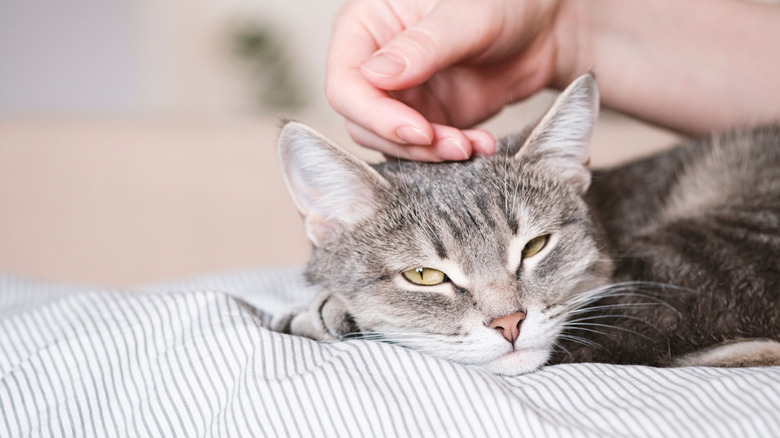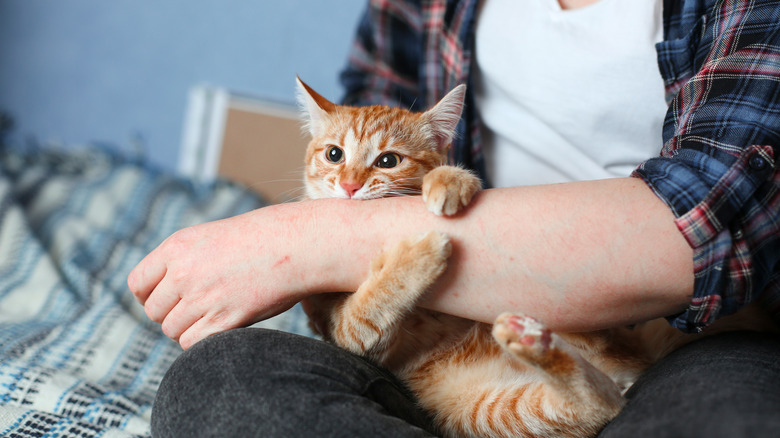The First Thing You Should Do After A Cat Scratches You
Cats make amazing pets and companions, and there are many benefits to having one of these fluff balls in your home. Cats can be good for your health, but there's something important you need to do if a cat scratches you. First, let's look at some benefits of having a cat.
Many people believe cats have a good effect on their well-being and help them handle everyday life better. Cat owners also said having a cat companion was helpful and that petting their cats is calming (via a 2012 study).
Cats can even save your life. A man in the United Kingdom has epileptic seizures, and his cat warns him when he's about to have one. Two people in Montana were woken up by their cat when a gas pipe started leaking. The house could have exploded if the cats didn't wake them up to warn them (via Mental Floss).
Cats are clearly awesome to have around, but cats will likely inevitably bite or scratch you. This is because cats use their claws as a defense mechanism and scratch if they're scared or trying to play. Here's what you need to do if your cat scratches you.
What to do when a cat scratches you
Cats can carry bacteria and spread that to you if you get scratched or bit, turning into an infection. Be cautious with stray cats, especially if you're immunocompromised or have diabetes. An infection could quickly become a severe medical problem. Cats can pass staphylococcus aureus (staph aureus), campylobacter, pasteurella, and cat scratch fever. Wash your hands after petting or playing with your cat, or changing the litter (via the Cleveland Clinic).
Healthline adds that you could get tetanus or rabies. After being scratched by a cat, the first thing you need to do is rinse it out with water and then wash it with soap. Use a clean towel to pat dry. If you're bleeding, apply some gauze to stop the bleeding, and then apply a bandage. Watch for signs of infection — swelling, puss, discolored streaks, or flu-like symptoms. The Cleveland Clinic adds other signs of infection are redness and increased pain. Contact your doctor if you start experiencing these symptoms or if the wound doesn't stop bleeding.
If you've been scratched on your eye, avoid rubbing and rinse with clean water or a saline solution. Then, have your doctor look at it to determine if there is any damage to your eye (via Healthline).


